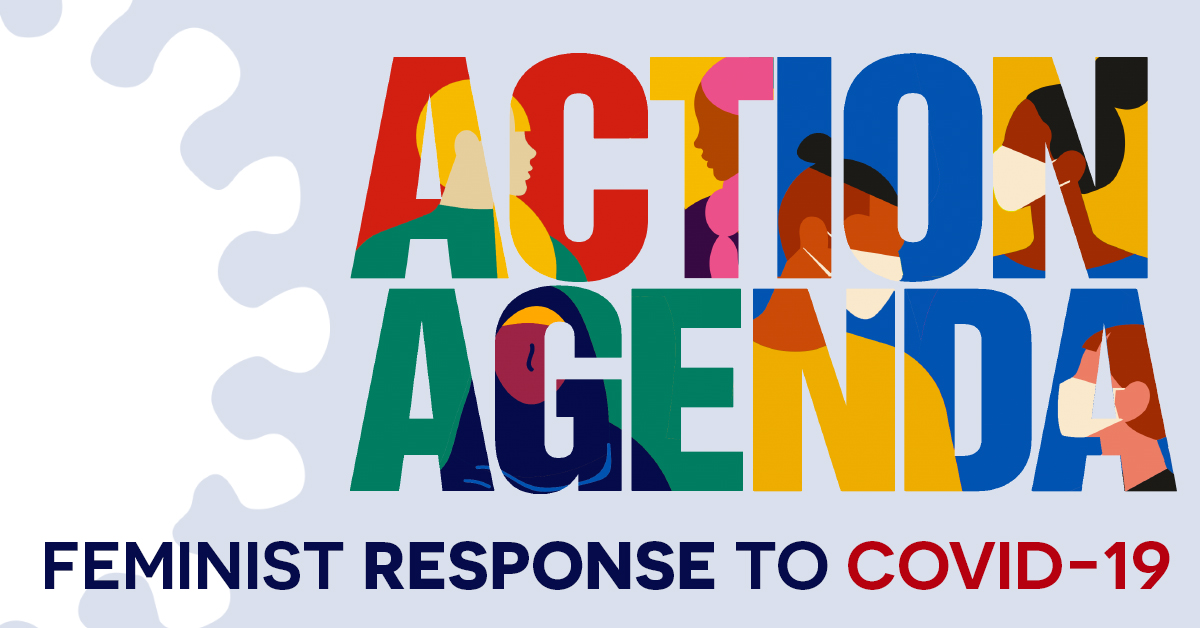Women make up 70% of health care workers globally, putting their lives at risk caring for those infected by COVID-19. Gender-based violence rose by almost 30% in some parts of the world in the first weeks of lockdown. An estimated 47 million women around the world may not be able to access modern contraceptives as health care systems divert resources to treating COVID-19 patients.
These are a few examples, highlighted in a new briefing released today, of how women, girls and gender-diverse people face unique challenges in the COVID-19 pandemic.
A Feminist Action Agenda for Canada’s Global Response to COVID-19 – produced by Oxfam Canada, Amnesty International, the Nobel Women’s Initiative, Inter Pares, Action Canada for Sexual and Health Rights, and the Equality Fund – states that Canada is well-placed to take a leadership role in ensuring that women’s rights and gender justice are at the heart of the global COVID-19 response.
“Not only does the pandemic have the potential to further widen the gap between rich and poor,” said Diana Sarosi, Oxfam Canada’s Director of Policy and Campaigns, “it could seriously undermine the progress that has been made over the past decades to advance gender justice. We cannot let that happen. Too much is at stake.”
The Feminist Action Agenda makes several recommendations on how the government of Canada can employ a gender equality lens in its actions to combat the pandemic. They include:
- Applying gender-based analysis to all international economic stimulus and recovery policies and packages;
- Increasing funding for local women’s rights and LGBTI organizations, as well as investing in women’s funds globally to quickly disperse emergency funds;
- Maintaining access to services for women and girls affected by violence, as well as sexual and reproductive health services, including safe abortion;
- Supporting access to personal protective equipment for those providing frontline care;
- Pressuring national governments to release political prisoners, many of whom are women, as they are at high risk of human rights abuse and COVID-19 infections in crowded prisons; and,
- Shifting money from military expenditures to health care, social protection and economic recovery.
Further, the Feminist Action Agenda outlines five S-words as principles for Canada’s response to COVID-19:
- Southern-led: Grassroots feminist organizations in the Global South lead the way in the COVID-19 response;
- Sustainable: The federal government ensures quality, long-term, flexible and predictable access to funding for women’s rights and gender equality groups;
- Standalone: The federal government ensures standalone programming and funding that addresses specific gender issues;
- Safety and rights: Governments around the world enact robust oversight measures to guard against potential human rights violations during the health crisis; and
- Security: Canada has already endorsed the UN call for an immediate ceasefire in every corner of the globe, but more needs to be done to ensure this call translates into a stoppage of conflict on the ground.
UN Secretary General Antonio Guterres has warned COVID-19 is deepening existing inequalities and having “devastating social and economic consequences for women and girls.” Gender inequality holds back progress on governance, human rights, peace, economic performance, food security, health, well-being, environmental protection and social progress. The security and stability of our countries is linked to the status of women, transgender and non-binary people. This is why women’s rights and gender justice must be at the heart of the global response to COVID-19.
Media contacts: Lucy Scholey, Amnesty International Canada (English branch), 613-853-2142, lscholey@amnesty.ca






















